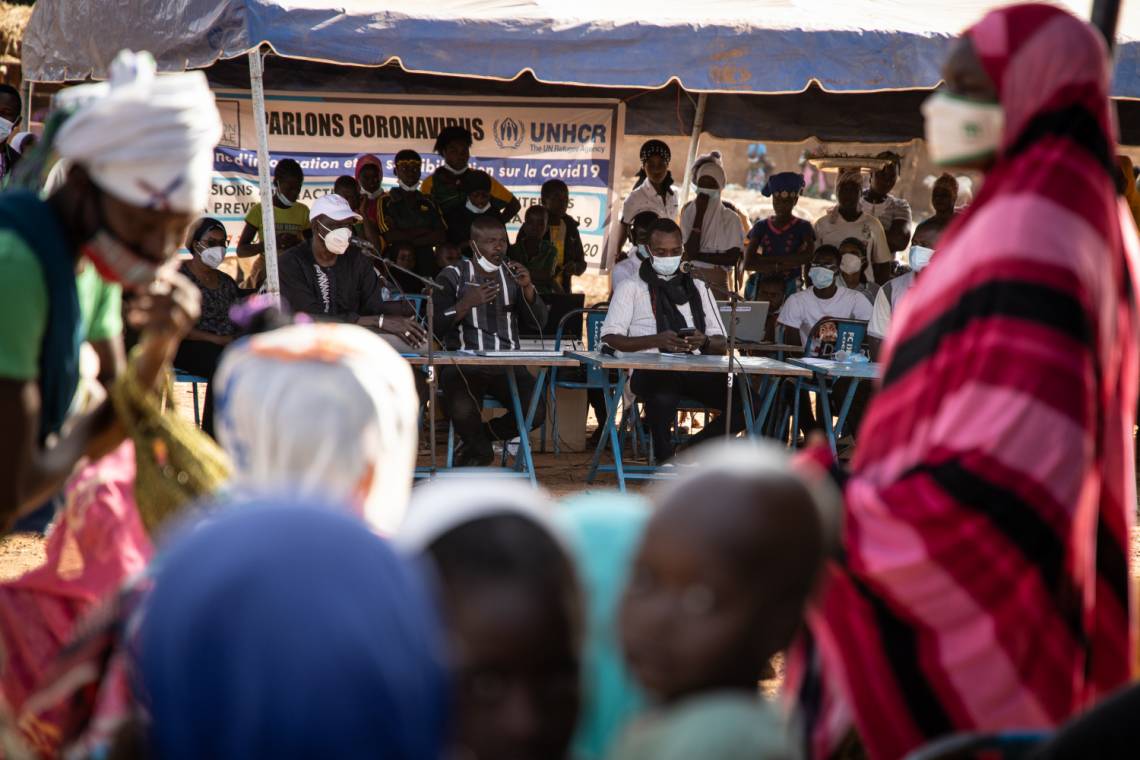Radio is a particularly effective medium in times of crisis. It is a relevant means of disseminating safe, verified and targeted information, especially to the most marginalised populations. These are the main conclusions of a recent research report in Burkina Faso.
The study, conducted by researchers Emma Heywood and Lassané Yaméogo for the Fondation Hirondelle, released its findings. Conducted in partnership with Elrha, an NGO that develops humanitarian responses through research and innovation, it demonstrates the effectiveness of radio as a tool for humanitarian response to crises. The scope of the study was located in three areas in Burkina Faso, in Kaya, Pissila and Kongoussi. Specifically, the research focused on the capacity of radio to produce and broadcast quality information on Covid-19, capable of reaching IDPs. The researcher therefore worked closely with these populations and their hosts to better understand their expectations and needs in terms of information. Through regular feedback, they were able to understand the impact of verified information in the fight against disinformation.
The study also focused on the productions and work of Studio Yafa, the multimedia information programme for young people created and implemented by Fondation Hirondelle in Burkina Faso. Studio Yafa's productions are broadcast by local radio partners in different regions of the country. Dr Emma Heywood and Dr Lassané Yaméogo were able to assess the impact of geographically targeted information. We reported on this work just over a year ago.
Internally displaced persons (IDPs) represent 1.4 million people in Burkina Faso. IDP communities are facing humanitarian, security and health crises. They are marginalised, which makes them particularly vulnerable to misinformation. Therefore, the study aimed to analyse the effectiveness of radio in delivering targeted, relevant and verified information, in order to restore some form of confidence in information. The feedback was collected via Whatsapp.
Several interesting conclusions emerged:
Firstly, radio seems to be the most suitable medium for humanitarian action, due to its ability to adapt to audiences and localise its broadcasting. The ability to broadcast in several languages also makes information more accessible. Radio also stands out for its ability to be effective in emergency contexts. The responsiveness of journalists and the ease of transmitting information make it particularly effective in crisis situations.
Finally, the key lesson for all organisations working in the humanitarian field is the need to take a holistic view. It is not enough to simply deliver 'top-down' messages. It is important to generate interaction with the audience, to allow them to participate in the life of the radio station, to better target their expectations and therefore satisfy their needs.
The results of this research are intended to help in the preparation of future humanitarian media projects in Africa.
To know more about this study : https://www.elrha.org/project/internally-displaced-persons-radio-and-covid-related-misinformation-in-burkina-faso/
Fondation Hirondelle +41 21 654 20 20
Unsere News
 ©Olympia de Maismont / Fondation Hirondelle
During a news broadcast about COVID-19 in an IDP camp in Burkina Faso in December 2020. Broadcast organized by Studio Yafa, a program of Fondation Hirondelle in Burkina Faso
©Olympia de Maismont / Fondation Hirondelle
During a news broadcast about COVID-19 in an IDP camp in Burkina Faso in December 2020. Broadcast organized by Studio Yafa, a program of Fondation Hirondelle in Burkina Faso
Radio, a reliable medium in times of crisis, says a recent study in Burkina Faso
Copyright © 2023 Fondation Hirondelle. All Rights Reserved.



